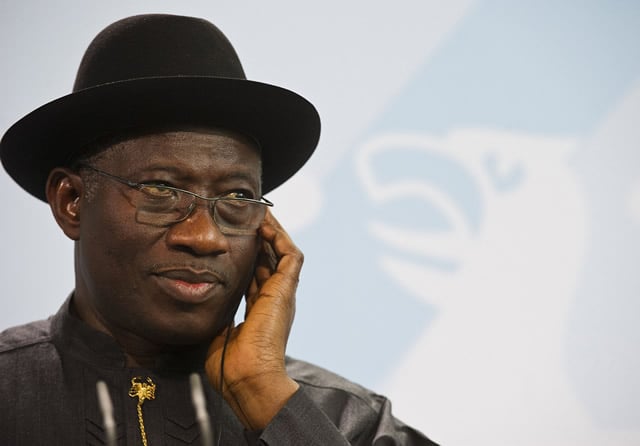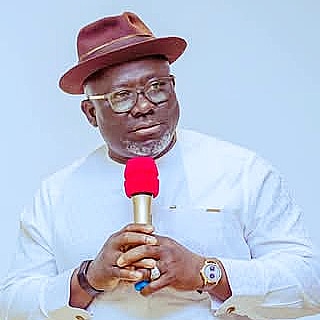By Ehichioya Ezomon
An Esan proverb says, “You don’t ask a sensible child to leave a smoke-filled place.” Another idiom says, “A person does not see dirt and allow it to enter their eyes.” If that happens, in both cases, it means the child or person has no common sense, or that something is wrong with them.
As confusion reigns in the opposition Peoples Democratic Party (PDP) over zoning of its presidential ticket to the South or North of Nigeria for the 2027 General Election, a recent controversial meeting of the party in Ibadan, Oyo State’s capital city, zoned the ticket to the South, as announced by Bauchi State Governor Bala Mohammed.
And lately in that regard, the Senate Minority Leader, Abba Moro, revealed that former President Goodluck Jonathan, ex-Anambra State Governor and 2023 Labour Party (LP) presidential candidate, Peter Obi, and Oyo Governor Seyi Makinde, have been shortlisted for the ticket.
But in reactions, PDP’s Deputy National Legal Adviser, Okechukwu Osuoha, claimed that other Southern aspirants “are holding private talks with stakeholders to join the race,” while the National Legal Adviser, Kamaldeen Ajibade, declared that “the ticket is still available to any aspirants across the country.”
These conflicting stances of the PDP leaders don’t seem to bode well for Jonathan’s 2027 run, given the “betrayals” he recalled witnessing during the 2015 election, and the damage – if he falters again – to his image and democratic credentials built since 2015 when he accepted defeat, and peacefully transferred power to then-opposition All Progressives Congress (APC) candidate, retired Gen. Muhammadu Buhari.
Amid arguments for or against drafting him into the race, Dr Jonathan, in Benin City, Edo State capital city, on Friday, September 5, 2025, at the 70th birthday ceremony of his former Chief of Staff and ex-Deputy Governor of Edo State, Chief Mike Oghiadomhe, reflected on Nigeria’s treacherous political environment, and his failed re-election in 2015.
Casting the celebrant as a dependable and trusted friend and ally, Jonathan said: “I became president, then post-presidency, one of the few friends that can give up their necks for me is Mike. You know politics, in the Nigerian standard, is about betrayals.
“You find it difficult to see somebody who will say the same thing in the morning and in the evening. I’ve witnessed a lot of betrayals, especially (in) my 2015 election, and Mike is somebody who would take a bullet on my behalf.”
Jonathan didn’t elaborate, but it’s public that those who encouraged and supported him to seek re-election would campaign for him in the daytime, and at nighttime collaborate with the opposition on how to oust him from power.
There’re clandestine activities by members of the Jonathan-Sambo (then-Vice President Namadi Sambo) Campaign Council, who advanced the North elite’s argument that the South had surpassed the region by nine years in the presidency since 1999.
To the North, another four years of Jonathan in power would give the South a 13-year edge over the three years President Umaru Musa Yar’Adua (2007-2010) occupied the presidency before his death in 2010.
But in 2011, Jonathan, who as Vice President (2007-2010), succeeded Yar’Adua in 2010, “distorted” the “unwritten agreement” that allows the North and South to rotate the presidency for an eight-year tenure of two terms of four years.
Relating to rotation, the North would’ve produced a replacement candidate and President for Yar’Adua, perhaps from the PDP, and Katsina State where he hailed from. But Jonathan, deploying the powers of incumbency, got the PDP ticket, and won the presidential poll in 2011.
It’s no surprise that the “North’s conspiracy” against Jonathan worked in the 2015 election that looked a shoo-in for him, but which he lost, with 16 of 19 Northern states (many under PDP) going to Buhari of the two-year-old APC. Here we’re 10 years after in 2025, and Jonathan’s angling for President in 2027, even as he traced his poll failure in 2015 to “betrayals” (from the North).
Jonathan’s bid for President 10 has little to do with his eligibility or capacity, but more of a sectional prodding by some North’s elite to get at President Bola Tinubu.
As they accuse Tinubu of “marginalising the North,” the elite seethe with rage over his alleged governance style and policy reforms that’ve alienated them from the system that feeds their political, financial, and influence staying power in the polity.
There’s no “true love” for Jonathan in the North – which love he wasn’t shown in 2015 when the North flipped the poll against him – but an “emergency love” to hoodwink and deploy him to divide Tinubu’s potential votes in the South in 2027.
Backing Jonathan is a bitter-sweet for North’s elite, as they don’t really want the presidency to go South in 2027, but for their opposition to Tinubu’s re-election, they’ll rather another southerner emerges to further disrupt the “unwritten agreement” to rotate the presidency between the North and South.
So, the debate about rotation is to stop Tinubu’s re-election, and prevent the South from its dominance over the North beyond 17 years in 2027 after Tinubu’s first term in office, or 21 years in 2031 if he or another southerner is elected in 2027.
Caught between two equally terrible or undesirable options, the North’s elite will prefer to cut their nose and let go power rotating to the South via Jonathan, in order to spite their face and sack Tinubu as a one-term President (OTP).
Having been “elected and sworn-in twice” as President in line with the amended 1999 Constitution of Nigeria, what’s the implication of Jonathan’s candidacy for the “gentleman’s agreement” to rotate the presidency between North and South, for which he’s a real-life experience to share?
Will Jonathan escape Section 137(1)(b) of the Constitution, which bars a person from running for President if “he has been elected to such office at any two previous elections,” and 137(3) that says, “A person who was sworn-in as President to complete the term for which another person was elected as President shall not be elected to such office for more than a single term”?
Polity watchers contend that Section 137(3) – enacted in the 2017 4th Alteration to the Constitution, and became operational in 2018 after Jonathan left office, and five years before the 2023 poll – will hamper his 2027 ambition. His handlers have dismissed this, with his brother, Azibaola Robert, warning that the ex-President doesn’t need their counsel and legal opinions to “take his political decisions.”
Curiously, though not surprising, there’s emerged a May 27, 2022, judgment of a Federal High Court in Yenagoa, Bayelsa State capital city – likely laying the grounds for Jonathan’s 2027 bid – purporting to give him an all-clear to contest for President (in 2023) sans encumbrances from Section 137(3) of the Constitution.
As first reported by Vanguard on September 7, 2025, the judgment arose from a writ filed by two APC members (Andy Solomon and Ibidiye Abraham), praying the court to determine whether, having regard to Section 137(1)(b) and 137(3) of the Constitution, Jonathan was qualified for President in 2023; should the APC field him as its candidate; and should the Independent National Electoral Commission (INEC) approve his candidacy?
But Jonathan (1st Defendant) countered that since he took the first oath of office as President in year 2010 and the second oath of office in year 2011, the 4th Alteration to the Constitution, which took effect from June, 7, 2018, “cannot be applied retrospectively to prevent him from exercising his right to contest for President… which said right accrued to him since year 2015 before the 4th Alteration to the Constitution was effected.”
To which trial Justice Isa H Dashen, after reviewing the submissions made before him, held that, “Having the benefit of reading the Official Gazette, Exhibit EKO1 (i.e. the Official Gazette of the 4th Alteration of the Constitution, ‘Commencement’), I therefore have no difficulty in holding that provisions of subsection (3) of Section 137 of the Constitution took effect from 7th June, 2018. And I so hold.”
It’ll be nine years by 2027 since Section 137(3) came into effect, and 12 years after Jonathan left office in 2015. But he claimed in the suit that “the right (which) accrued to him since year 2015 “retrospectively protected his exercising the right to contest for the Office of President of the Federal Republic of Nigeria.”
Interpreted, Jonathan holds that the right he acquired to contest in the 2015 poll subsists, and can’t be vitiated by the 2017 4th Alteration to the 1999 Constitution, which became operational in 2018 after he left office in 2015 – a claim the trial Justice Isa H Dashen agreed with.
Jonathan’s argument portrays a feeling that Section 137(3) was enacted to prevent him from exercising his right to contest for President again. Rather, it’s meant to cure the obvious lacuna of a president exceeding an eight-year tenure in office!
This was the force behind the North’s rallying in 2015 to support Buhari, whose tenure (2015-2023) reduced, by eight years, the South’s 13 years of dominance of the presidency.
Meanwhile, Jonathan’s handlers, supporters, and the PDP angling to field him for 2027, have affirmed his claim that Section 137(3) of the Constitution can’t “retrospectively” prevent him from vying for President.
But Jonathan’s critics and the sceptics don’t seem to care a hoot about the court judgment – which seems unappealled after three years – and are sharpening their legal arsenal to revisit the eligibility question should he jump into the presidential race.
As genuinely-concerned Nigerians worry that he’s being led to the slaughter by power-hungry politicians out to capitalise on his “popularity and influence” to launder their political career; it’s hoped that the analogy of “a sensible child,” leaving a “smoke-filled place,” will suffice as a useful guide to Jonathan’s final decision to run for President in 2027.
*Ezomon, Journalist, writes from Lagos, Nigeria. Can be reached on X, Threads, Facebook and WhatsApp @EhichioyaEzomon. Tel: 08033078357_ .






